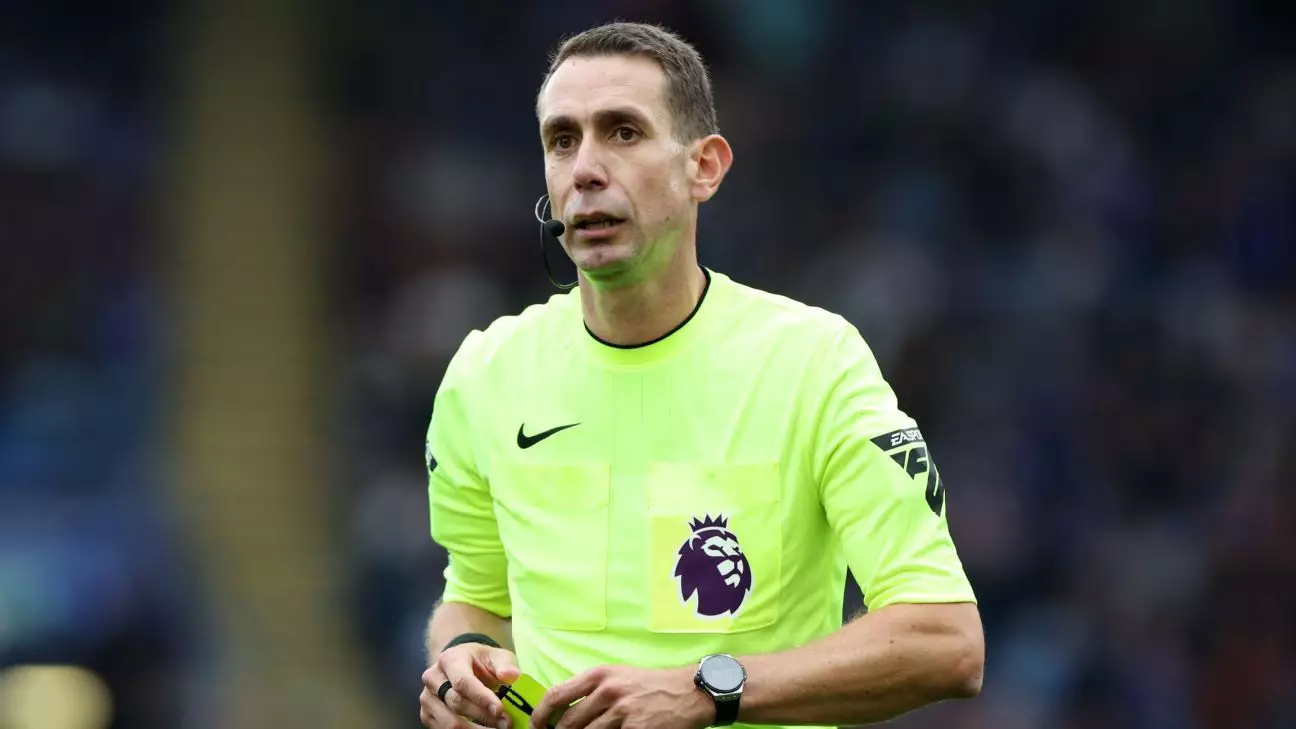The English Football Association (FA) has adopted a rigorous approach to an unsettling situation regarding referee David Coote. Allegations have emerged that Coote had a discussion about potentially issuing a yellow card prior to a match, an assertion that does not sit well with the integrity standards upheld in professional sports. The scrutiny pertains to a controversial match between Leeds United and West Bromwich Albion that took place in October 2019, where Coote’s actions are coming under fresh examination based on communications with a fan.
The Nature of the Allegations
Initial reports surfaced from The Sun, indicating that during the buildup to the aforementioned match, Coote allegedly discussed the possibility of booking Leeds’ player Ezgjan Alioski with a fan he interacted with online. While the act of issuing a yellow card itself is not questioned for wrongdoing, the implications of prior discussions about such actions bring into focus issues of neutrality and impartiality that are irrefutably critical in officiating. Coote’s subsequent message the following day, expressing hope that the fan ‘backed as discussed,’ raises eyebrows about the legitimacy of his officiating.
The FA responded quickly, labeling the claims as “very serious” and emphasizing the urgency of the investigation. Coote himself has vehemently denied any wrongdoing, branding the allegations as “false and defamatory.” He insists that despite personal challenges, they have never influenced his professional judgment. This defensive stance highlights a fundamental aspect of sports integrity: a referee’s credibility must remain unquestioned for the system to function effectively.
Compounding the situation is Coote’s prior suspension due to recorded incidents where he expressed derogatory opinions about Liverpool and publicly engaged in behavior that could be perceived as unprofessional. Following these events, he was not only suspended by PGMOL but was also under investigation by UEFA related to video evidence that raised further concerns about his conduct. The timeline and nature of these incidents challenge perceptions of his fitness to officiate and could tie into his current predicament.
Implications for Football Officiating
The situation surrounding Coote serves as a potent reminder of the scrutiny that referees face and the judicial survival they must navigate. Football’s governing bodies must exhibit transparency and accountability in such inquiries, reaffirming their commitment to fair play. The importance of maintaining an unblemished record for referees is paramount, as any perceived lapse threatens the fabric of sportsmanship within the game. The zero-tolerance policy adopted by the PGMOL is an encouraging signal; however, the ultimate outcomes will have far-reaching implications for how officiating is perceived moving forward.
As investigations unfold, both the FA and PGMOL must tread with careful consideration, underscoring the balance between criticism and due process. David Coote’s case has ignited debate, and the football community watches closely as new revelations may impact not just one referee’s career but the larger discourse on officiating integrity in football. As the situation develops, sports enthusiasts and stakeholders alike demand a fair resolution that reinforces the principles of honesty and transparency in the world of sports.

Leave a Reply